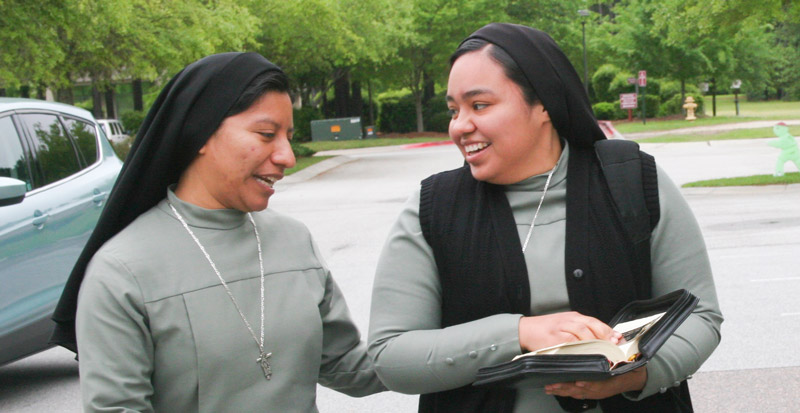
Q. My husband has a sibling who is getting married to a same-sex partner. They have been together for years. Given our religious beliefs, are we able to attend the ceremony? (Greenville, SC)
A. This is one of those very hard questions from the real trenches of Christian discipleship. The question itself speaks well of your discipleship in that you understand that your faith and our moral teachings should influence all the areas of your life. Obviously, this is not easy and can sometimes cause tension between family relationships and our Christian witness.
In answer to your specific question, therefore, a Christian believer cannot participate in a “gay wedding.” A wedding is a public, formal act and attending such a ceremony can be seen as an assent to the marriage itself. Since a marriage between two people of the same gender is contrary to both moral truth and nature, a Christian disciple cannot agree with such a union and therefore cannot participate in a ceremony that formalizes it.
It is essential to the law of charity, however, that this non-attendance be communicated to a family member respectfully and in such a way as to avoid harsh rhetoric or judgment of their person. Additionally, every effort should be made to preserve some type of relationship with the family member so our loved one does not feel isolated or ostracized from his family. Such an approach builds a bridge and could leave an open forum for further conversation on love, marriage, sexuality, conversion, and virtue.
In light of our current cultural trends, this may not be well received by your loved one, extended family members, or friends. This should not surprise you. In these moments of disagreement, speak the truth in love (cf. Eph 4:15) and show the world that love “is patient, love is kind. It does not envy, it does not boast, it is not proud. It does not dishonor others, it is not self-seeking, it is not easily angered, it keeps no record of wrongs” (1 Cor 13:4-5).
Q. I hear a lot of things about mercy and have many questions. To cut to the chase, could you just give a summary of what mercy is according to the Bible? (Aiken, SC)
A. The oldest word for mercy in the Bible is “hesed”. This is a difficult word to translate since it also means love, kindness, and compassion. Oftentimes, it is simply translated as “loving kindness.” I believe this translation gives us the best context to understand mercy. Oftentimes, we can relegate mercy to a mere legal act: You offend me, and I forgive you.
Biblically, this summary of mercy is minimalistic. Certainly mercy involves the forgiveness of an offense, but it is given in service to the loving kindness within a relationship between two people or groups. Mercy is less about a courtroom as it is about a living room. Mercy is about relationship and peace between people.
Digesting this truth is the first step in understanding the biblical notion of mercy.




